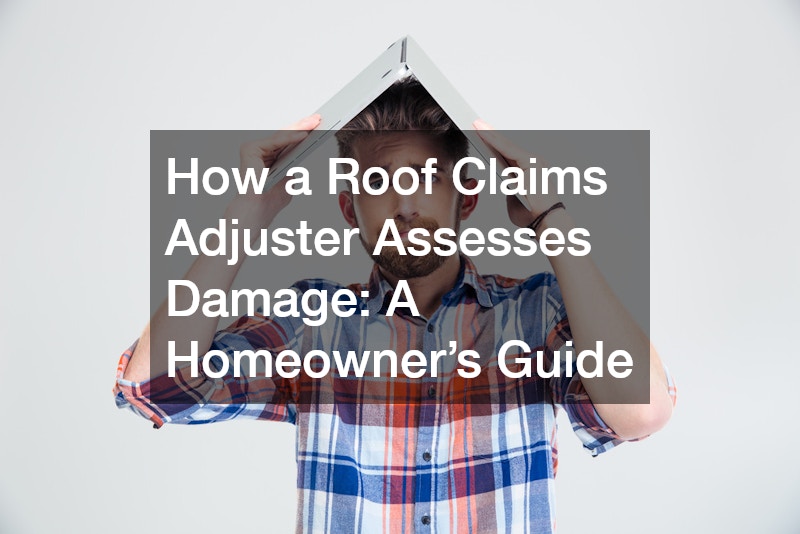Disclaimer: The insurance information provided here is for general knowledge only and does not replace advice from licensed insurance professionals. Please consult a qualified advisor for coverage decisions.
Ensuring that your home is protected from potential damages is crucial, and one of the most significant aspects of home maintenance is the condition of your roof. It’s no surprise that when it comes to damage or necessary repairs, many homeowners turn to their insurance policies for support. Navigating the intricacies of insurance coverage, however, can be daunting. Knowing which questions to ask your agent can make all the difference in understanding your policy’s scope and ensuring that you’re adequately covered should you need extensive work, such as a roof replacement. This article aims to guide you through the top 10 pertinent questions that you should pose to your insurance agent. Covering everything from policy details to maintenance requirements, these questions will help you gain a clear picture of what your insurance entails and how to manage any roof-related incidents effectively. Whether dealing with weather-induced damage, leaks, or the need to comply with maintenance stipulations, being well-informed is your best defense against unforeseen expenses and complications.
What Specific Roof Damage Is Covered Under My Policy?

It’s important to understand the specifics of what types of damage your policy covers. For instance, some policies may cover damage caused by natural events like storms or hail, but exclude damage due to improper maintenance or ordinary wear and tear. Make sure to ask your agent to clarify these details to ensure you’re prepared and knowledgeable about what to expect if your roof sustains damage.
Additionally, certain policies might only cover specific kinds of materials and conditions of roofing. Knowing whether your existing roof material and condition are covered can prevent unexpected costs. Ask about the exact parameters your insurer uses to determine coverage eligibility and ensure your home’s roofing meets these criteria.
Lastly, knowing if there are any coverage limitations, such as only replacing part of the roof or capping the cost, can save you from hidden expenses. Make sure to delve deeply into these questions and keep records of the responses for future reference. Being precise about these details ensures there are no surprises when filing your insurance claim for roof damage.
Are There Any Exclusions for Roof Repairs or Replacement in My Insurance Plan?

One of the crucial insurance roof replacement questions to ask is about exclusions. Insurance plans often come with certain exclusions that limit the coverage for roof repairing or replacement. These exclusions can vary widely between different insurance providers. By knowing what is excluded, you can plan better maintenance strategies and avoid potential coverage denials.
For example, some policies might exclude damage due to pests, damage caused by accumulated snow, or water damage and mold cleanup. Other exclusions could involve certain types of damage like cosmetic issues that don’t affect the roof’s functionality. Be specific and ask your agent to provide a detailed list of what isn’t covered under your insurance plan.
Understanding these exclusions helps you make informed decisions about additional coverage or even taking preventative actions to mitigate risks. It also helps in determining when and how to use your coverage to its fullest potential, ensuring you’re not left with unexpected roofing repair costs.
How Will My Deductible Affect the Cost of Roof Replacement?
The deductible in your insurance policy is the amount you’re required to pay out of pocket before your insurer covers the remaining costs. Understanding how your deductible affects your roof replacement costs is one of the essential insurance roof replacement questions to ask. Different policies might have different deductibles for various types of claims, including roofing leaks or total roof replacements.
For instance, some policies might have a standard deductible, while others have a percentage-based deductible that is a percentage of your home’s insured value. Clarifying these details with your agent helps you understand your financial responsibility in the event of a claim.
Additionally, knowing the deductible can impact your decision to file a claim for minor repairs versus major replacements. If the cost of roof repair or replacement is not significantly higher than your deductible, you might opt to pay out of pocket to avoid potential premium increases. Ensure that your query is specific and that you understand all the implications of your deductible in relation to roof replacements.
What Is the Process for Filing a Claim for Roof Damage or Replacement?

Knowing the process for filing a claim is critical to ensuring a smooth experience during a stressful time. Asking your insurance agent about the procedures and timeline involved in filing a claim is among the top insurance roof replacement questions. Understanding this process helps you ensure that you’re taking the right steps and submitting all required documents promptly.
Typically, the process involves reporting the damage, documenting it through photos or inspection reports, and then submitting a claim form. Some insurers might also require a professional inspection or an adjuster’s visit to assess the damage. Clarify these details with your agent to avoid delays and complications.
Moreover, ask about expected timelines between filing the claim and receiving the settlement. Understanding how long the overall process takes can help you plan accordingly and make emergency arrangements if needed. Having a clear, step-by-step guide from your agent ensures you won’t miss any crucial steps and jeopardize your claim.
Does My Policy Cover Repairs for Leaks or Just Full Roof Replacements?
Another important question to ask is whether your policy covers minor repairs, like fixing leaks, or if it only provides coverage for full roof replacements. This distinction can impact your decision-making process when addressing minor issues. Sometimes, policies may cover leaky roof repair provided the leaks are due to specific insured events, such as a storm or hail.
However, it’s common for policies to exclude maintenance-related issues or gradual leaks resulting from neglect. Ask your agent about the specific conditions under which minor repairs are covered. This will give you a clearer understanding of what qualifies for insurance coverage and what you may need to handle out of pocket.
Furthermore, knowing these details allows you to prioritize regular maintenance more effectively. If your policy covers only major replacements, investing in preventative maintenance can save you significant costs in the long run. Always clarify what constitutes a “covered event” for leaky roof repairs to ensure you’re fully aware of your coverage specifics.
Are There Any Requirements for Maintaining My Roof to Keep My Coverage Valid?
Many insurance policies come with stipulations regarding the maintenance of your roof. These requirements are set to ensure that homeowners adhere to certain standards, which helps in mitigating risks for insurers. As one of your insurance roof replacement questions, ask your agent about the specific maintenance activities needed to keep your coverage valid.
Common requirements could include regular inspections, clearing debris, replacing damaged shingles, and ensuring proper attic ventilation. Failing to meet these requirements can lead to coverage denials when you need to file a claim. Understanding these specifications helps you develop a maintenance plan that aligns with your policy terms.
Additionally, ask about the timeline for these maintenance activities. Some policies might require annual inspections, while others may have more frequent or event-triggered checks. Keeping a detailed record of these activities can be invaluable if you need to provide proof of maintenance when making a claim.
How Do You Handle Claims for Damage Caused by Weather Events Like Storms or Hail?
Weather-related damage is among the most common reasons homeowners file claims for roof repairs or replacements. Consequently, it’s one of the crucial insurance roof replacement questions to address with your agent. Understanding how claims for weather-related damage are handled will give you a clearer idea of what to expect and how to prepare.
Typically, weather-related claims might require extensive documentation to prove the extent and cause of the damage. Your insurance provider might send an adjuster to assess the damage, or they might rely on third-party reports from contractors. Ask your agent about the specific requirements and timelines for these assessments.
Additionally, inquire about any special considerations for different types of weather events, such as hurricanes, snowstorms, or hail. Each may have different coverage limits or deductible rules. Clarifying these details ensures that you know how to act promptly and efficiently after a weather event to get the most out of your coverage. Understanding the specific requirements and timelines for damage assessments can help expedite the claims process. Additionally, being aware of any special considerations for different types of weather events can help you maximize your coverage and avoid any surprises during the claims process.
What Role Do Gutters Play in My Coverage for Roof Repairs or Replacement?
While discussing the various aspects of roof coverage, don’t overlook the role of gutters. Proper gutter maintenance and functionality can significantly impact your roof’s condition, and this is one of the important insurance roof replacement questions. Ask your agent how gutter issues can affect your insurance claims for roof damage.
Gutter replacement or repair might be included in your policy if improper drainage leads to significant roof damage. However, many policies might require proof that the gutters were well-maintained to honor the claim. Ask your agent about these specifics to understand what maintenance is necessary to avoid claim denials.
Additionally, ensuring that your gutters are in good condition can help prevent related issues such as water intrusion, which might not be covered separately under your policy. By including gutters in your maintenance plan, you can avoid potential complications and ensure that your roof’s integrity is preserved, thereby keeping your insurance coverage intact. Regular gutter maintenance is essential to prevent water damage and maintain the overall integrity of your property. By staying proactive with gutter upkeep, you can potentially avoid costly repairs and ensure that your insurance coverage remains valid in case of any unforeseen incidents.
How Does My Insurance Policy Handle Roof Damage Caused by Flooding or Water Intrusion?
Flooding and water intrusion present unique challenges, and their impacts on your roof can be substantial. Addressing how your insurance policy covers these issues is one of the critical insurance roof replacement questions. Standard home insurance policies typically do not cover flood-related damages, requiring separate flood insurance. Ask your agent how these different coverages interact.
For instance, if water intrusion damages your roof and home interior, understanding whether your flood insurance covers these incidents or if it falls under your standard policy is crucial. Make sure to get clarity on how various scenarios are handled, such as water damage due to leaks versus catastrophic flooding.
Furthermore, inquire about any specific requirements or exclusions related to water damage. Policies might require immediate reporting and specific types of repair documentation. Proper understanding of these details ensures you are fully prepared to act swiftly and efficiently in the event of flood-related roof damage. It’s also important to review your policy limits and deductibles to ensure you have adequate coverage in case of a flood. Consider discussing additional coverage options with your insurance provider to fill any potential gaps in protection. This proactive approach can help minimize financial losses and streamline the claims process in the event of flood-related roof damage.
Where Do I Start?
Navigating through the complexities of insurance coverage for roof replacement can be a daunting task. However, by asking the right questions, you can gain a comprehensive understanding of what your policy entails. From understanding what specific damages are covered to knowing the process for filing a claim, each question you pose to your insurance agent can play a crucial role in preparing you for potential roofing issues. Clarifying details about exclusions, deductibles, and maintenance requirements ensures you’re not caught off guard during critical moments. Moreover, understanding how your policy handles different types of damages, including those caused by weather events or flooding, allows you to take proactive steps to protect your home efficiently. Remember, the key to effective insurance coverage lies in the details, and being well-informed is your best defense against unexpected expenses and complications related to roof repairs or replacements. By thoroughly discussing these insurance roof replacement questions with your agent, you secure a robust plan tailored to your home’s unique needs and challenges. This preparedness ultimately leads to peace of mind, knowing you’re well-protected against unforeseen roofing issues.




